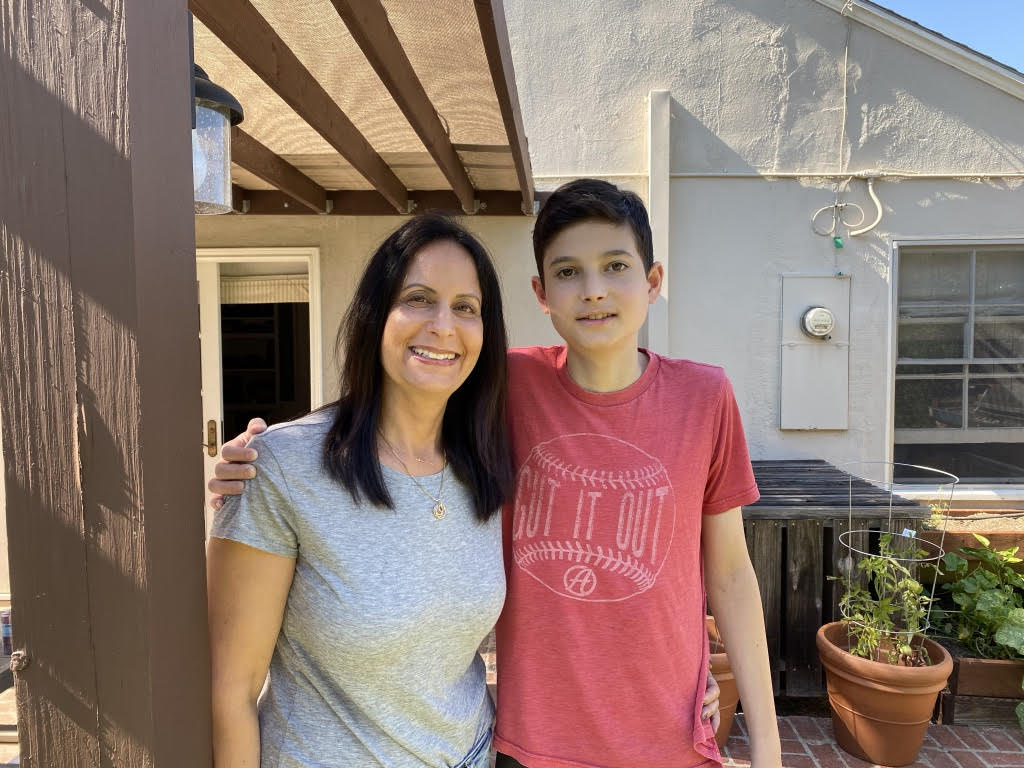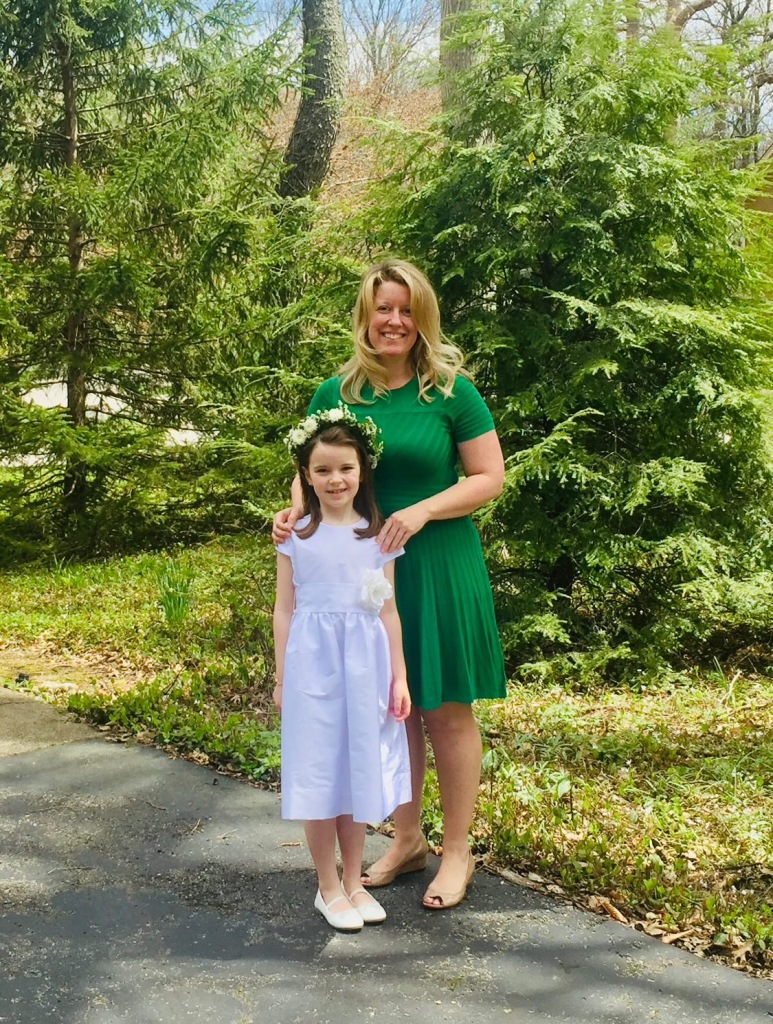Managing a chronic health condition often means receiving medication through an infusion or a self-injection. If the thought of getting or even giving a shot brings on tears and fears, you are not alone. It’s no surprise, two-thirds of children and one-fourth of adults have apprehension and anxiety around needles. So, what do you do when your child needs to take self-injections to manage their IBD? It’s a complicated and emotional process for everyone involved.
This week on Lights, Camera, Crohn’s we hear from a certified Child Life Specialist, a former pediatric patient who experienced self-injections, and two mothers whose children were diagnosed with IBD at a young age.
Phylicia Petit is a Certified Child Life Specialist at a Children’s Hospital in Minneapolis, Minnesota. She says being truthful with your child about the self-injection helps to build trust.

“Prepare your child for what they may experience in an age-appropriate manner. Use soft language. For instance, instead of saying “don’t move,” say “hold still.” Avoid phrases like “you’re almost done” and “it’ll just take 3 seconds”. Instead, praise your child for what was done well. Say, “you did a great job holding your arm still” or “thank you for telling me how you felt during that.”
Phylicia also says if you are calm and relaxed, your child will be calmer and more relaxed.
“Children often feed off their parent’s emotions. Use gentle and helpful words such as, “do the best work that you can do,” “you did it!” and “your job was to hold still like a statue, and you did that so well.”
Setting a routine
By giving the injections at the same time of day and in the same place, children cope best when they know what to expect. Children’s bedrooms are a place of comfort, so use a different space.
Phylicia says that by offering choices, it gives your child a sense of control. You can achieve this by saying “do you want the injection in your right leg or left leg?” and “do you want me to count to three?”
Reduce the pain
No matter your age, most people don’t enjoy needles. You can help reduce the pain for your child by using numbing cream. Contact your local pharmacist or GI to discuss topical anesthetics.
Buzzy uses vibration and ice to distract the brain from feeling pain.
Shot Blocker uses several blunt contact points to saturate the sensory signals around an injectionsite to distract from pain signals
“Don’t forget, you are a comfort to your child. Comfort positioning can be used by parents and caregivers during injections to reduce stress and anxiety in your child and help safely immobilize an arm or leg,” said Phylicia.
Comfort and distraction items:
- Pacifier
- Blanket/stuffed animal
- Favorite TV show
- Blowing bubbles
- Squeezing a squish ball
Have your child sit up. Children are often more scared when they are lying flat. If you need help holding your child still, try holding them in your lap in a firm, but comforting position.
Practice deep breathing. Take a big breath through your nose, then blow out through your mouth. Have your child do this 3 to 5 times. To make this more visual for a little one, you can use a paper flower, pinwheel, or bubbles, and practice this before, during, and after the shot.
“As a former pediatric patient there were a couple of things that helped. Finding ways to numb the spot prior, whether it was ice or a numbing cream. Using a room, I could distract myself in (typically with a TV). If I was able to do it myself, I would set up the space, so I was comfortable. If my mom helped this still applied, but we talked through the entire injection to occupy my mind. It came down to comfort and finding ways to manage my anxiety around the shot. Over the years, it got easier, especially when we switched from the auto-injector to the manual shot,” said Natasha.
Stacy Dylan’s son was diagnosed with Crohn’s when he was only 2 years old. She co-founded the nonprofit Connecting to Cure Crohn’s and Colitis to help families cope and conquer IBD.

Here are Stacy’s tips for caregivers when it comes to injections:
- Acknowledge that as a mama this is going to be hard. “You are going to feel sad and wonder why you and your child have to go through this. It’s going to be hard to watch them have anxiety about the shot and to feel pain. Get support for yourself for this.”
- Try not to let your child see your pain. “Even though you are feeling this way, you know that giving them their meds is going to (hopefully, although it might take a few different meds to find the one that works) make them feel better and happy and more like themselves so approach your child with compassion and assurance about the potential of the meds to make them feel better.”
- Try to have a calendar that shows when the shot is due but don’t talk about it too much if they are not bringing it up. “Remind them the day before or the morning of the shot and set a time to do it.”
- There are practical things that may work to ease the pain of the shot. “Ice before and after. Rubbing the site after it goes in. Emla cream is a great numbing cream. My son is 22 and has been getting infusions, injections, and blood tests since he was 2 and numbing cream is our friend. We also used the Buzzy. It’s held on the skin before and after the shot and it stimulates the skin to reduce pain.”
- Offer a reward. “At times I offered something post shot that motivated him when he was younger. Perhaps being able to watch a little more TV that day. Or a small new toy. Or a food treat that they can have, and it could be special for the shot day.”
- Look into having a home nurse, if needed. “My son has been on so many of these meds since he was 7. When he was on Humira from age 9-10, it was before the citrate free (pain free) version and the Humira shot was very painful. It became too hard for me to do it and was too difficult for our relationship. It is rare that you can get insurance to cover a home nurse to do this, or to bring the child to get the GI office nurse to do it. We were able to pay a nurse to do his Humira shot for a brief period of time until he adjusted to it. It helped a lot.”
Cindy’s 12-year-old daughter was diagnosed with Crohn’s disease four years ago. She helps her daughter with weekly Humira injections and also offers helpful advice from a caregiver’s perspective about what it’s like to give your child an injection and cope with the difficult experience.

- Don’t let your nerves show. “When I became responsible for giving the injections at home, I was nervous about doing it and it was important to me that I not transfer my own personal anxiety to my daughter. To this end, I really wanted to practice giving shots on anything other than her, so that when I had to inject her, I felt comfortable with what I was doing. Unfortunately, I only came upon the advice later, so it didn’t help me at the time…but I heard to use an already used syringe on a naval orange for practice.”
- Do the injection in a neutral space. “A psychiatrist advised us to do injections in a neutral place. I had been giving my daughter her injections in bed because to me, this was the place where she was most comfortable. Unfortunately, she developed sleep problems, and our psychiatrist helped me understand that a negative association with the injection is not something that you want to combine with a happy place. In the summer, we inject it on our back porch and in the colder months we usually do it in our guest bedroom.”
- Syringe instead of auto-injector. “We also find the syringe to be so much better than the pen. The pen made us feel tense and the lock was Pavlovian. The syringe allows for more control. No sounds. Go fast or go slow. My daughter takes a lot of comfort in her Buzzy.”
- It gets easier. “Not better…but easier. For the first couple months, we had to physically restrain my daughter when injection day rolled around. It was soul shattering. However, we all did become used to what needed to happen and now (while not fun at all, it is a non-event). We do the injection now and move on with our day. We are thankful for the ease and convenience of injecting at home, and always thankful this medication is preserving my kid’s quality of life.”











